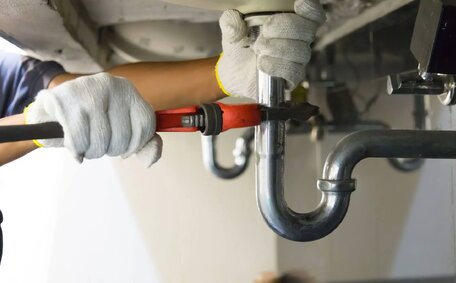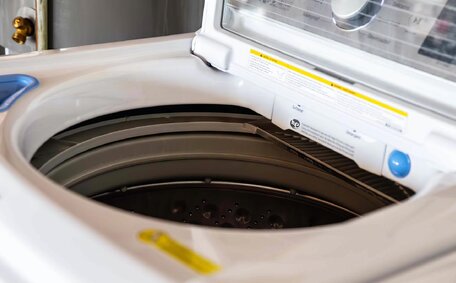Understanding the dangers of gas leaks
A natural gas leak poses a serious threat to natural gas safety and the well-being of individuals. Following established safety procedures is essential to reduce risks and ensure readiness for calling emergency gas services if necessary.
When gas is processed, mercaptan is added because natural gas is odourless, to give it a rotten egg smell and make leaks detectable. Disregarding a suspected gas leak risks explosions, fires, carbon monoxide poisoning, suffocation, and other dire consequences.
Although rare, gas leak explosions can occur, usually due to common negligence and substantial accumulations of gas.
The more frequent dangers include carbon monoxide poisoning and suffocation. Gas, by displacing oxygen from the environment, can cause organ damage, unconsciousness, and even fatality. It’s critical to recognize that gas leaks can quickly ignite fires upon contact with a spark or flame. A build-up of carbon monoxide (CO) can have devastating consequences.
Exposure to natural gas typically results in symptoms like headaches, nausea, fatigue, and confusion.
Awareness and action are key when dealing with gas leaks, regardless of the perceived explosion risk. Proper education on how to prevent gas leaks, combined with regular inspections, monitoring, and prompt action, minimizes the risks.
Detecting signs of a gas leak
Identifying signs gas leak can be pivotal in averting danger:
- Beyond the strong rotten egg odour, a tell-tale sign of a leak, there are more indicators to help detect gas leaks.
- Hissing, whistling or roaring sounds coming from gas appliances or lines
- Flames coming from the ground, sidewalk surfaces or out of plumbing vents
- Unusual patches of dead or dying vegetation around gas lines
- Experiencing symptoms like headaches, dizziness, fatigue and nausea could indicate a gas leak presence
Trusting one’s sense of smell alone is not sufficient; equip yourself with robust gas detection systems and heed tips prevent gas incidents.
Taking action when you suspect a leak
Should a gas leak occur, immediately evacuate your home and seek professional assistance; swift action is imperative for safety. Do not turn any electrical devices or appliances on or off, as sparks could ignite leaking gas. If safe to do so, open all doors and windows to shut off the gas supply and ventilate the area.
Immediately reach out to your utility provider and emergency services for swift assistance. Remain at a secure distance and do not re-enter your home until you receive professional help and clearance.
Ensure your emergency contact list prominently displays the national gas emergency number for rapid response during a gas leak situation at your home. Learn the locations of your gas meter and shutoff valve to quickly cease gas supply when you detect a leak. Entrust professionals to manage gas leaks near your house, mitigating potential dangers.
Ensure that you and your household are equipped with essential safety tips prevent gas leakage in case of an emergency. Promptly evacuating the vicinity and making a home call to your professional gives the best chance of addressing a gas leak safely.
Preventing gas leaks in your home
Several steps illustrate how can I effectively prevent gas leaks, nurturing a secure living environment:
- Ensure a local licensed specialist checks your gas appliances and lines annually. These specialists possess the keen ability to detect gas leaks or issues you may overlook.
- For new appliance installations, engage a certified gas fitter to guarantee natural gas safety. Improper installation is a major cause of leaks.
- Conduct regular maintenance on appliances like water heaters, stoves and outdoor gas lights. Replace worn parts when needed.
- Look for signs of corrosion and damage on flexible gas line connectors. Replace any that are degraded.
- Update old gas pipe fittings that may be prone to cracking. Use only approved pipes, seals and fittings.
- Trim any overgrowth near gas line to ensure the pipelines remain unobstructed. Roots can damage pipe infrastructure.
- Methane detectors should, as components of an effective detection system, be positioned wisely to pre-empt gas leak incidents. They sound an alarm if gas builds up.
- Educate everyone in your household to know about gas safety and the immediate steps to enact in case gas is detected in your abode.
Proactive installation and maintenance reduce the likelihood of gas leaks in your facility. Swiftly tackling any troublesome signs also diminishes the threat of leaks your home may face.
Maintaining gas appliances and fittings
Consistent upkeep of gas appliances and connectors is essential on how to prevent gas mishaps. A maintenance schedule helps prevent issues with appliances including water heaters, stoves, and outdoor lights. They can spot issues not visible during standard operation.
Replacing worn parts as recommended and conducting regular check gas components ensures appliances function safely and efficiently over their lifespan.
Promptly replace worn connectors to maintain safety.
Updating old gas line fittings and pipe infrastructure reduces the risk of cracks and leaks. Use only approved pipes, seals, connectors and valves when replacements are needed.
Consider installing leak detector devices for extra security. They sound an alarm if dangerous gas accumulation occurs.
Adhering to safety standards and grasping gas leaks how prevent strategies through proper maintenance reduces the likelihood of hazardous leaks. Partnering with qualified professionals ensures you have the expertise to keep natural gas systems safe.
Replacing old gas pipes and equipment
Replacing aged gas components, including pipes, fittings, and appliances, reduces the risk of dangerous leaks. As infrastructure ages, the risk of cracks, loose fittings and wear increases. We recommend periodically assessing the age and condition of your gas systems and keep detailed records of any updates or repairs.
Stay vigilant and be on the lookout for corrosion that could detect gas leak occurrences. Use only approved components meeting current codes when replacing gas infrastructure.
Replace any fittings that show wear. Consider upgrading to more durable piping where possible.
Likewise, assess your gas appliances, such as stoves, hot water systems, and lights.
Always ensure that only licensed technicians perform installations.
While updating gas systems incurs initial costs, proactively addressing a potential gas leak workplace safety concern becomes a top priority, significantly diminishing risks. Providing a safe environment for your family or your employees is well worth the cost.
Installing gas detectors and ventilation
Installing gas leak detectors and ensuring proper ventilation are critical layers of protection against hazardous natural gas leaks. Gas detectors provide an early warning system, while ventilation helps prevent accumulation.
We strongly recommend installing both fixed and portable gas detectors for effective self-managed safety.
Fixed detectors continuously monitor gas levels and deactivate the alarm when levels are safe. Portable detectors can find leaks at connections and appliances, helping you to identify issues quickly. Models are available for natural gas, propane, carbon monoxide and other dangerous gases.
Adequate ventilation is vital for managing gas leaks in commercial and industrial settings. Ensure outdoor appliances linked to your main gas supply have sufficient airflow to prevent leakage, a serious fire and health hazard. For indoor appliances, outdoor releases for ventilation systems should be clear, and indoor air exchange should meet specifications.
Installation of carbon dioxide and carbon monoxide detectors by fuel-burning appliances is essential for health safety to detect possible CO leaks. If you ever suspect a gas your home leak, immediately open windows to allow swift dispersion of the gas in your surroundings. Proper ventilation limits risks even when leaks occur.
Combining gas detectors with effective ventilation answers the question of where gas leaks might compromise security in your home. Gas detectors spot issues early while ventilation prevents accumulation. We recommend integrating both strategies to keep homes and businesses safe from the threats posed by gas leaks.
Conducting professional inspections
Regular professional inspections of appliances, including HVAC systems and furnaces, are recommended to prevent gas incidents and ensure safety. We recommend scheduling inspections at least annually to check for leaks and assess the condition of appliances, pipes and fittings.
During inspections, a comprehensive gas leak test using sophisticated tools should be performed to identify potential leaks. They also examine appliances and infrastructure for signs of wear, corrosion and damage that could be the source leak in the future. Technicians ensure that safety systems are compliant and verify that ventilation is sufficient.
Professional inspections routinely reduce the risk of gas-related health hazards. They also ensure any issues are addressed before leading to carbon monoxide buildup.
Entrust the safety of your loved ones and workplace security to our team, dedicated to meticulous gas safety inspections.Contact us at 1300 349 338 or jobs@carlingfordplumbingservices.com.au to schedule annual servicing.
Stay vigilant and proactive in safety measures. Our team is ready to help maintain a gas leak-free environment.





